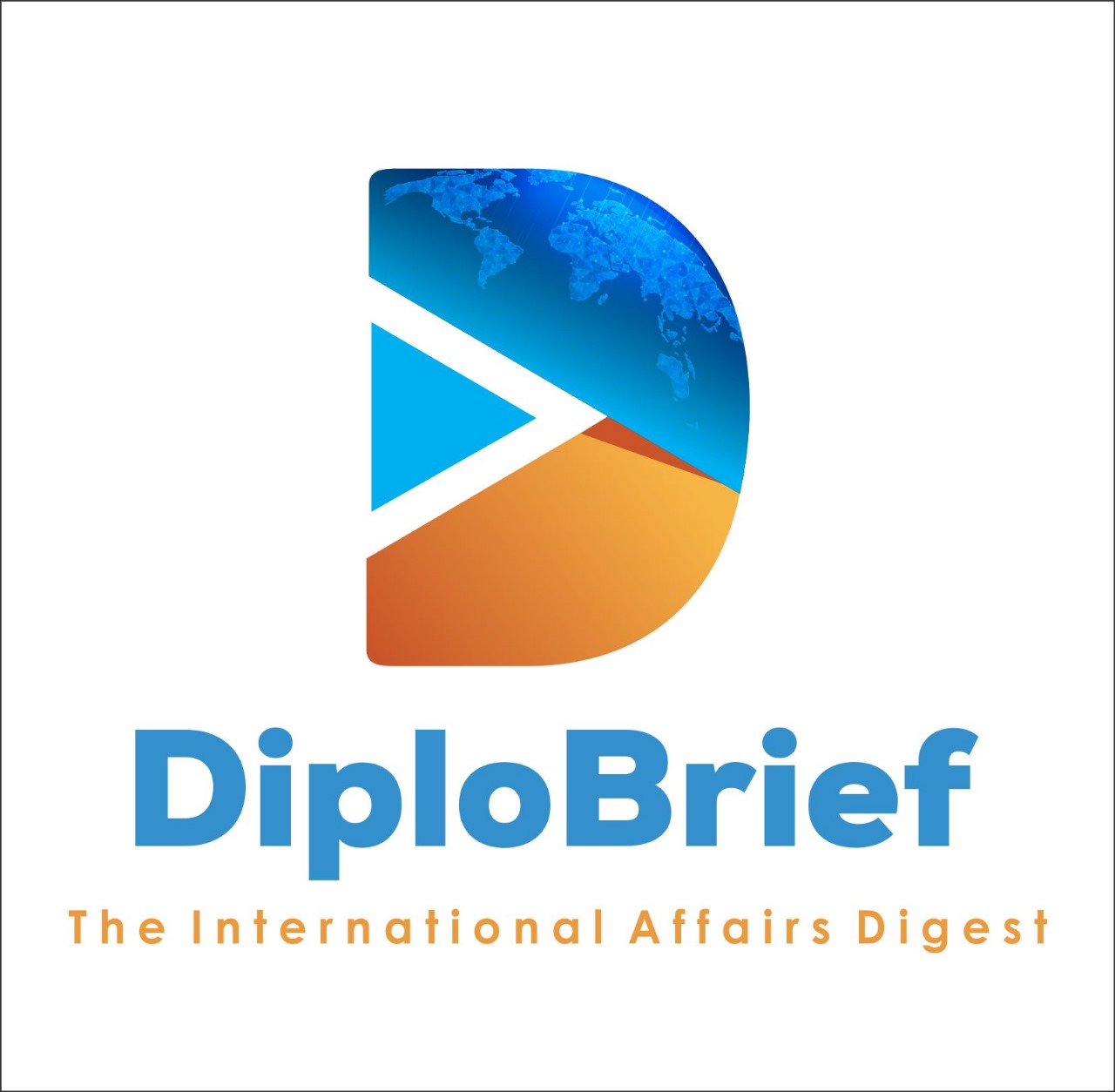BY MICHAEL ADIADO
The Trump regime has introduced chaos into the world. President Donald Trump’s first actions in the Oval Office included dismantling USAID, introducing different tariffs to countries across the world, pursuing sanctions against Iran, Venezuela and Cuba. He has also been very clear on how US will tackle the immigration issue
From this chaos, the Horn of Africa hasn’t been spared. The dismantling of USAID has threatened livelihoods in Africa, a continent bearing the brunt of climate change, soaring inflation due to the Russia-Ukraine war and Jihadists attacks in Somalia — as Al-Shabaab regains a foothold.
Somalia has been entangled in Trump strategy of moving away from UN institutions as evidenced by a Bill presented in the Senate by Foreign Relation’s committee Chairman James Risch, Senator Ted Cruz and Scott. The Bill seeks to restrict the UN from using US assessed UN funding to support AUSSOM Mission.
This adds fuel to the rumours that Trump’s inner circle is tired of Somalia government lethargy and corruption and may, therefore, recognize Somaliland as a way of saving American resources. In the Senate Foreign Relation’s Committee, Somalia was mentioned by John Meservey, appearing as a witness, as a country that clearly depicts the failure of US strategy of relying on personalities as opposed to building institutions.
The senior Fellow from Hudson Institute said clan remains the fundamental ordering principle of Somalia’s society, making a strong central government unworkable.
“Yet Washington has spent over a decade trying to make just such a system work in Mogadishu. Instead, Washington should work directly with those federal member states and other sources of authority that are friendly and have enough legitimacy and competence to degrade al-Shabaab,” Meservey told the committee.
On Sudan, the committee heard that Russia has been granted permission by the junta government to build a logistical support point in Port Sudan mainly due its support of SAF through weapons. Iran, the UAE, Turkey, Saudi Arabia and Egypt have been identified as regional actors heavily entangled in the conflict. Committee chairman James Risch noted that the Sudan situation has no clear otions nor clear outcomes, and the US may bid it time before deciding on their strategy.
South Sudan was cited as a country that proves why US needs to pivot away from personality-driven startegy. Despite pumping $10 bilion into the South Sudan, the government is yet to stabilize. In any case, the UN has said it is now teetering on the brink of returning to a full-scale civil war. Senator Risch displays his displeasure with how South Sudan elites continue to postpone elections, and views the transitional government as lacking legitimacy.
“Take, for example, South Sudan. Its government exists based on a peace agreement that its signatories routinely violate. The US played a central role in the country’s creation, a legacy that has carried a financial cost well above $10 billion in assistance since independence in 2011. Yet the returns on this investment, in terms of securing sustainable peace and a functional state, are marginal at best, and arguably diminishing,” Risch said.
On Ethiopia, its desire to have a naval presence has been highlighted as one of the threats facing Horn of Africa.
This desire at first saw Ethiopia moving to recognize Somaliland in exchange of naval presence, an action that drew the ire of Somalia, which reacted by seeking the intervention of Egypt and Türkiye. Ethiopia has also signed various bilateral agreements either aimed to strengthen its Navy expansionism. This is the case with the France-Ethiopia Navy deal ambitions and the MoU between Iranian police and Ethiopian police to share intelligence information. Ethiopia is also facing internal squabbles as evidenced by TPLF split as well as groups such as Oromo and Amhara.
Regarding Uganda, the Senate Foreign relations Committee was made aware of the upcoming elections, which have seen a surge in incidences of political interference by the army as evidenced through the arrest of Kizza Besigye in Nairobi and the abduction of opposition figure Bobi Wine bodyguard.
Meservey also cited the X account of UPDF Chief of Défense Forces Muhoozi Kainerugaba, terming him erratic and intemperate and hence a threat to US-Uganda relations, if he succeeds his father, Museveni.
“Uganda is another such case. Its troops are helpfully fighting al-Shabaab, yet President Museveni’s son, his heir apparent, is erratic and intemperate, and may have recently participated in the torture of an opposition leader’s bodyguard.
“Washington should balance the risks inherent in working with especially long-term leaders and promote durable state-to-state relations by, for instance, offering more technical trainings for African judiciaries and commercial ministries,” he said.

Kenya on the other hand elicited mixed reactions from both the Committee Chairman and the two witnesses. Even though cited as a close ally to the US, Ruto’s rhetoric on the reform of the global financial architecture, reform of multilateral institutions such as the Bretton Woods and UN Security Council seems to be pandering to China talk points.
“Just last month, President Ruto declared that Kenya, a major non-NATO ally, and China are “co-architects of a new world order.” That’s not just alignment to China; it’s allegiance. I submit for the record the text of that speech. Relying on leaders who embrace Beijing so openly is an error. It’s time to reassess our relationship with Kenya and others who forge tight bonds with China,” Senator Risch said.
Meservey brought evidence of President Ruto rhetoric, citing the late Iran President Ebrahim Raisi State Visit to Kenya as an example of the Kenyan leader embracing US adversaries. President Ruto hailed Iran as a strategic partner and an innovation powerhouse.
Meservey noted that Ruto’s decision to embrace Iran seems to ignore its tole in supporting terror plots that have affected Kenya
“Iran in the last several years has focused on East Africa to regain some of the influence it lost due primarily to the efforts of the UAE and Saudi Arabia. Ebrahim Raisi became the first Iranian president to visit Africa in over a decade when he toured Uganda and Kenya in 2023.
“Despite the Iranian-backed terror plots his country has suffered, Kenyan President William Ruto dubbed Iran a “critical strategic partner,” he noted.
Iran, however presents, a quandary to Kenya’s Foreign Policy. Even though cited as a huge adversary to US global interests, it presents a commercial opportunity to Kenya especially as market for its tea. Tea is also an important crop in Kenya’s domestic politics and the government in power must handle its trading carefully as the farmers represent a huge voting bloc that can sway elections
Michelle Gavin, a fellow at the Council of Foreign Relations, argued that the US missed an opportunity to align with the Kenyan’s needs.
Despite Ruto breaking a 16-year dry spell of an African president to be granted State Visit to the US last year and bagging numerous investment deals, it didn’t stop Kenyans from registering their displeasures against his regime a month later.
Kenyan citizens thronged to the street to oppose repressive taxes as well as register their displeasures against opulence exhibited by Top leaders despite preaching Austerity measures to the general populace.
She also reiterated that the pivot towards China and Gulf countries by Ruto has been necessitated due to US companies’ hesitation to invest in Kenya due to the hostile investment climate contributed by the June 2024 Protest against the Finance Bill
In conclusion, it thus seems that Senator Risch has read a riot act towards US key allies in the region — Kenya, Somalia, Ethiopia and South Sudan.
There’s a clear message that states that deem themselves to be close allies of US shouldn’t associate with countries deemed to be America’s adversaries.
From the witness testimonies, it’s clear that they were calling for clear US -East Africa Strategy that clearly highlights what the US national interests are and how states wishing to align with ought to behave.
It was also evident that the witnesses were calling for a pivot away from the personality-driven policies that aimed at elevating individual leaders at the expense of institutions and systems
For Kenya’s foreign policymakers, the Senate hearing serves as a headache to them in a world where African states are grappling with huge debts that call for balancing between foreign policies and national interests.
It’s also important to note that the US Senate Foreign Relations Committee is an important institution in US Foreign Policy decisions, passing bills, approving presidential foreign appointments and in shaping foreign narratives.
When Ruto was invited for the US state visit, there were expectations that he would address a Joint Congress sitting. This would’ve made him the first East African President to do so and hence elevate his status and influence.
However, the address was not conducted as it lacked bipartisan support from both Democrats and Republicans. This, therefore, shows the important role played by the Senate in shaping US Foreign Policy.
Michael Adiado is an aspiring researcher in foreign policy and geopolitics














